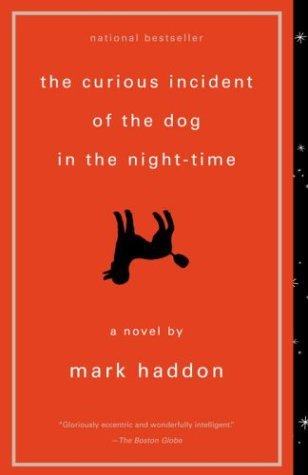I'll start us off with one of my picks:
"You see,"continued the minister, bowing thankfully to the duke, "Dictionopolis is the place where all the words in the world come from. They're grown right here in our orchards."
"I didn't know that words grew on trees," said Milo timidly.
"Where did you think they grew?" shouted the earl irritably. A small crowd began to gather to see the little boy who didn't know that letters grew on trees.
"I didn't know they grew at all," admitted Milo even more timidly.
"Well, money doesn't grow on trees, does it?" demanded the count.
"I've heard not," said Milo.
"Then something must. Why not words?" exclaimed the undersecretary triumphantly. The crowd cheered his display of logic and continued about its business."
Friday, May 26, 2006
Thursday, May 25, 2006
Humbug
What is the purpose of the Humbug? He's a liar, a fraud, and no one likes him. Why does the author single him out to join the brave Milo and loyal Tock on their quest?
Wednesday, May 24, 2006
Monday, May 22, 2006
And the people you'll see
There are times when I identify strongly with sobbing and temperamental Dynne. (I hope your copy of the book had that illustration of the blue-smog creature.) For better or worse, do you see yourself as any of "Tollbooth's" characters?
The great places you'll go
Could you relate to any of Milo's stops and visits during his journey? I personally dither in the Land of Expectations. There's also the Island of Conclusions, the Doldrums, or maybe you relate to aspects of Dictionopolis or Digitopolis. Or how about the Forest of Sight, Valley of Sound, Castle in the Air or Mountains of Ignorance?
Thursday, May 18, 2006
Christy's selection: "The Phantom Tollbooth"

This fab children's book should be available at your library, and I have a copy on hand that I'll pass along to Kim if the rest of you can check yours out. This would put us on track to read a book about twice a month, which I hope sounds OK.
I'll begin posting discussion points on Monday. Ideas to consider: Whether numbers or letters are better; what letter of the alphabet you'd like to eat, and how would it taste; and casting of the Book Cases in five pivotal character roles: The Duke of Definition, the Earl of Essence, the Minister of Meaning, the Count of Connotation and the Undersecretary of Understanding.
Monday, May 15, 2006
unhappy ending?
While the book ended on a seemingly positive note (Christopher and father are getting along, Christopher gets a dog), I was still feeling sad when the book ended. I thought if Christopher had been 12 or 13, the reader would be able to excuse away his present issues as something he could still "grow out of," in part, or his school would still have more time to teach him life skills. Instead, the intense supervision he needs at 15 seems unlikely to change. Did his plan to be a scientist seem realistic, or is that as far-fetched as his dream to be an astronaut?
Saturday, May 13, 2006
Child's play

Is it just me, or is Brit lit way more in to children characters than American lit? Christopher, even though he's autistic and "different," is still very reminiscent of an English fondness for the exceptional child. When I think of the great American novels, there aren't a lot of kids, like Moby Dick and The Great Gatsby and The Sun Also Rises and all of Henry James and Edith Wharton and the Beats. I mean, there are notable exceptions like Catcher in the Rye and Huck Finn and To Kill a Mockingbird, but children don't seem as pervasive as in Brit lit, where there's this great fondness for starting at the beginning (Dickens and the Brontes and Kipling and Joyce and Carroll) and possibly more cynicism about the adult world (and corrupt old aristocracies), and, of course, the peculiar British school system. Am I just imagining this?
Friday, May 12, 2006
Comedy?
Several things I've read about this book said it was "very funny" or "often blackly funny" or "full of tender humor." And the author said it was "very funny" to describe the slain dog in Christopher's flat, emotionless narrative. Am I missing something? The only thing I found funny was the strange British cursing. "Fucking Nora."
Thursday, May 11, 2006
More Brit kid lit
Has anyone ever read "The Secret Diary of Adrian Mole Aged 13¾"? I thought it might be a good companion piece — another book about a precocious British kid, but circa early 1980s — for those of us impatient cows (moo!) who finished early. From what I've seen, the fictional kid diary is amusing but doesn't hold a candle to Erin's brilliant chef-d'oeuvre.
Narrator's ally too contrived?
How crucial is Siobhan to the form Christopher's story takes? Is Siobhan too good to be true? Too artificial a device to get the story told?
Narrator's descriptions
What, if anything, does Christopher's way of describing things add to the book?
Tuesday, May 09, 2006
Subscribe to:
Comments (Atom)



